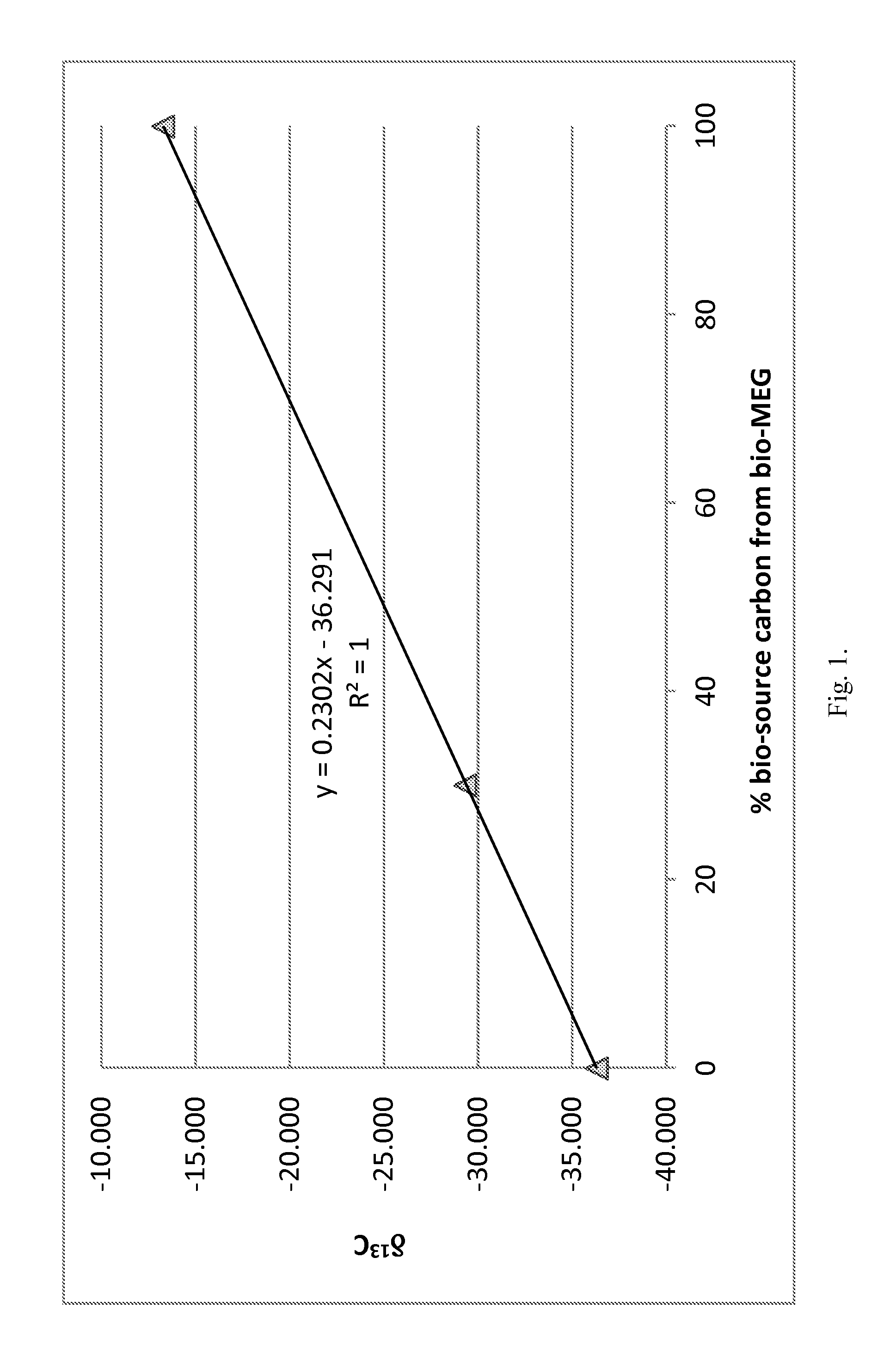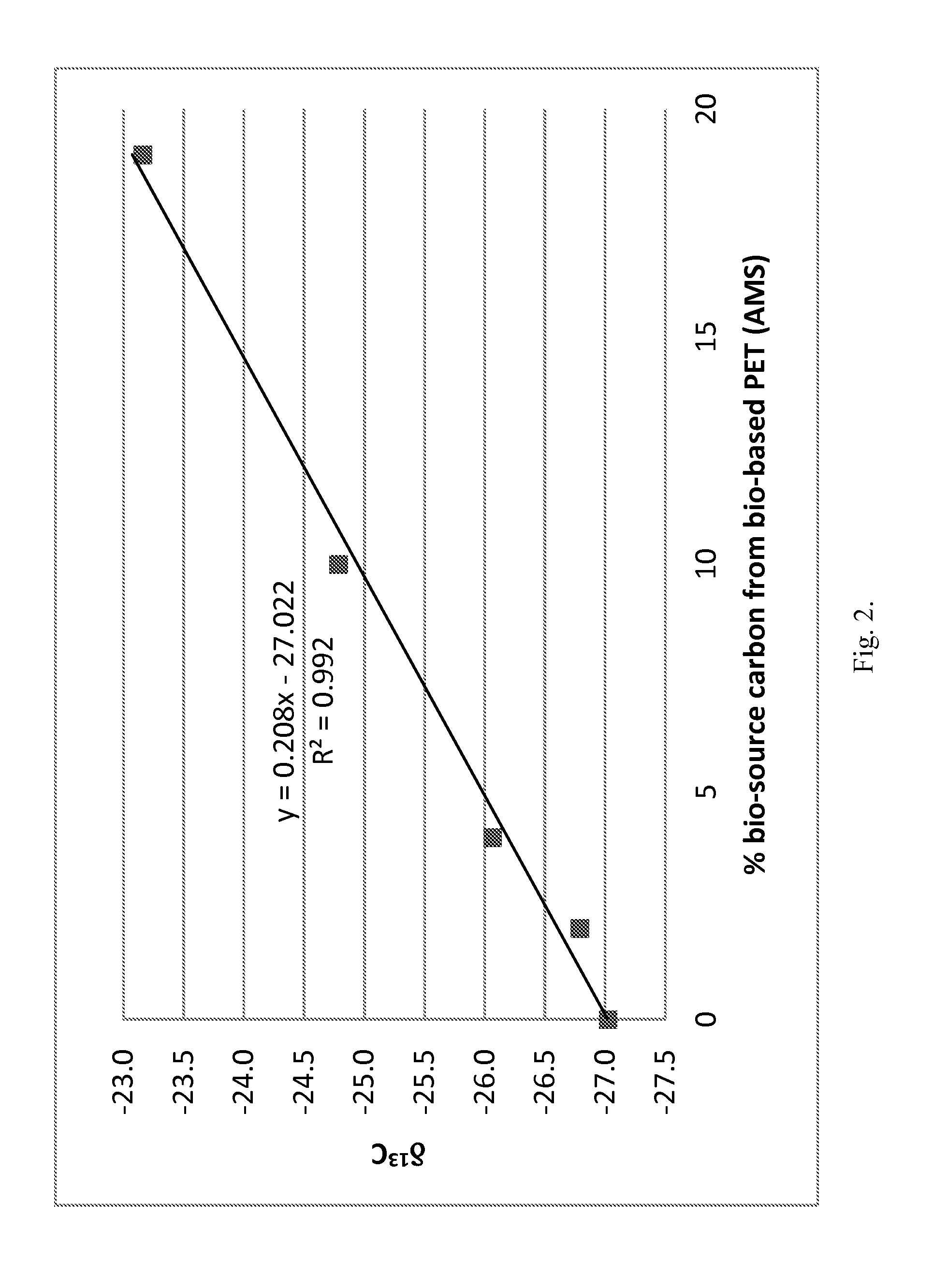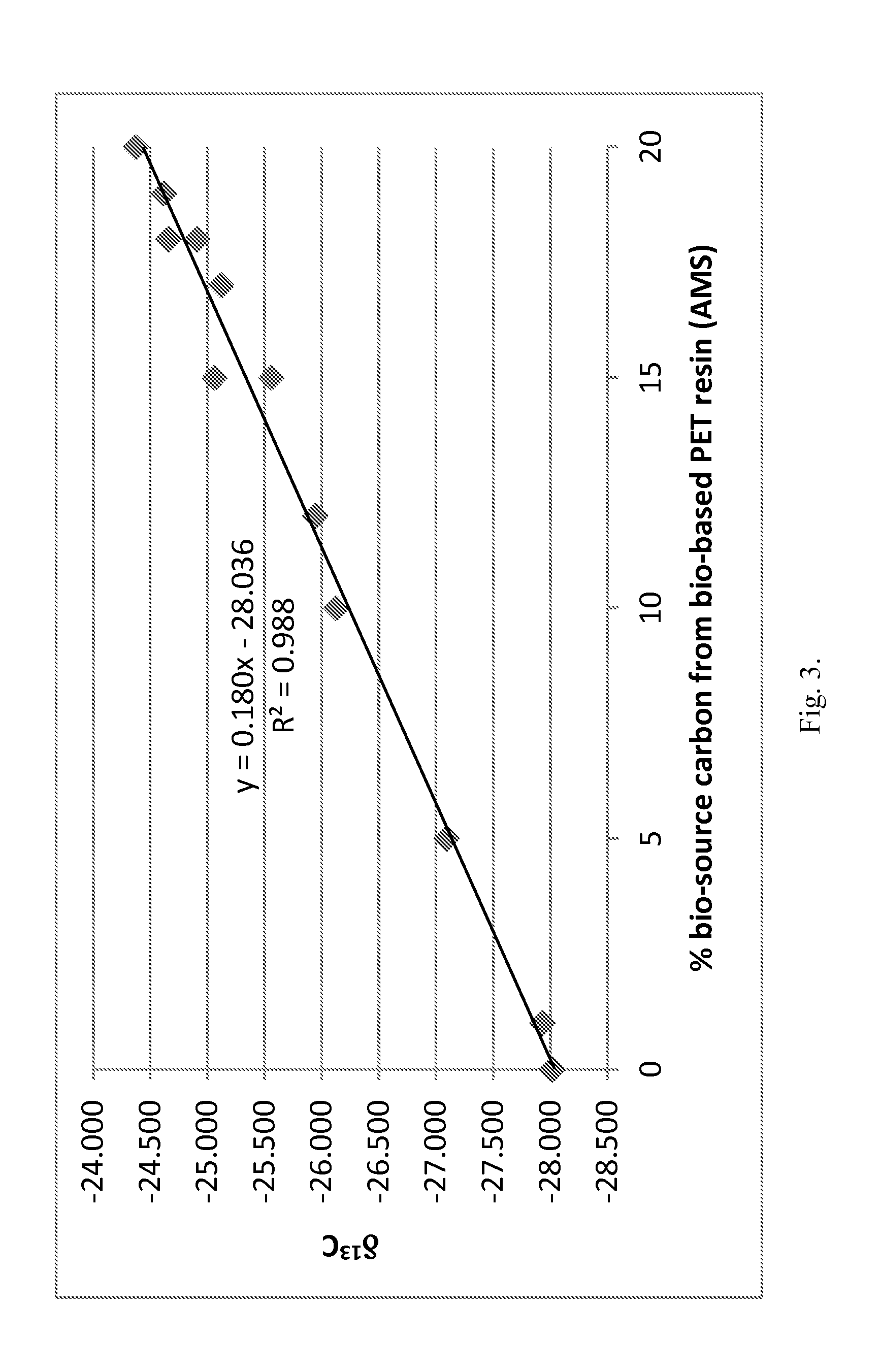Methods for Measuring Renewable Bio-Source Content in Renewable Bioplastic Materials
a bio-source content and bio-plastic material technology, applied in chemical methods analysis, material analysis using wave/particle radiation, instruments, etc., can solve the problems of non-renewable petroleum-based plastics, unable to be re-grown, regenerated at a rate comparable to consumption, and non-renewable petroleum-based plastics which take millions of years to form
- Summary
- Abstract
- Description
- Claims
- Application Information
AI Technical Summary
Benefits of technology
Problems solved by technology
Method used
Image
Examples
example 1
Measurement of Renewable Bio-Source Carbon Using iTOC-CRDS
Chemicals, Reagents, and Devices
[0138]Methanol.[0139]Dewar filled with liquid nitrogen.[0140]Retsch CryoMill equipped with 50 mL stainless steel (SS) jar and 25 mm SS grinding ball.[0141]Ohaus Explorer E1D120 Analytical Balance (Max 4100 g).[0142]Mettler Toledo XP6 Microbalance (Max 6.1 g) equipped with cleaning brush.[0143]OI Analytical Aurora Model 1030.[0144]OI Analytical Solids Model 1030 equipped with large quartz cups (open bottom).[0145]Picarro Cavity Ring Down Spectrometer—Isotopic CO2 G1111-i.[0146]Ultra High Purity Oxygen—outlet pressure 60 psi.[0147]Compressed air.[0148]Glass wool.[0149]SS tweezers.[0150]SS spatula.[0151]SS tray for holding large quartz cups.[0152]Small brush.[0153]Funnel.[0154]Hamilton gas tight syringe—10 μL.[0155]Trace Clean Clear Borosilicate Glass Vials—20 mL with PTFE-faced Septa in Open Top Cap Precleaned (VWR Cat No.: 89093-854).[0156]GC auto-sampler vial caps—National Scientific DP (dual p...
example 2
Linearity, Accuracy and Precision on MEG from Renewable Bio-Source in MEG
[0170]FIG. 1 shows a correlation plot of iTOC-CRDS measured δ13C values versus actual renewable bio-source contents (mixed with known ratios containing MEG from non-renewable petroleum and renewable bio-source) for three MEG samples. Table 1, below, shows a comparison of the actual renewable bio-source content and the measured renewable bio-source content calculated from the trend line in FIG. 1. A linear regression was applied to determine the slope and intercept of the correlation plot. This information was used to calculate the renewable bio-source content in samples.
TABLE 1Comparison of the actual renewable bio-source content andthe measured renewable bio-source content calculated fromthe trend line in FIG. 1.% Renewable%bio-source carbonRenewable(iTOC-CRDS-bio-sourcecalculatedcarbonδ13Cfrom linearMEG(Actual)(iTOC-CRDS)correlation plot)Petro-based0.0−36.320−0.1Renewable bio-based100.0−13.280100.0Laboratory ...
example 3
Linearity, Accuracy and Precision on MEG from Renewable Bio-Source in PET Resin
[0171]FIG. 2 shows a correlation plot of iTOC-CRDS measured δ13C values versus AMS-measured renewable bio-source carbon content for five PET films. A linear regression was applied to determine the slope and intercept of the correlation plot. This information was used to calculate the renewable bio-source content in the PET film samples. Table 2 shows a comparison of the actual, AMS-measured, and iTOC-CRDS-calculated (from linear correlation plot in FIG. 2) renewable bio-source content in PET films.
TABLE 2Comparison of the actual, AMS-measured, and iTOC-CRDS-calculated (from linear correlation plot in FIG. 2) renewablebio-source content in PET films.iTOC-CRDS-calculatedfrom lineariTOC-CRDSActualAMScorrelation plotPET Filmsδ13C% Renewable bio-source carbonPetro-based−27.027000Renewable bio-based−23.162201919Laboratory prepared−24.787111011mixtures−26.067445−26.792221
[0172]Table 3 shows replicate iTOC-CRDS δ...
PUM
| Property | Measurement | Unit |
|---|---|---|
| temperatures | aaaaa | aaaaa |
| temperatures | aaaaa | aaaaa |
| temperatures | aaaaa | aaaaa |
Abstract
Description
Claims
Application Information
 Login to View More
Login to View More - R&D
- Intellectual Property
- Life Sciences
- Materials
- Tech Scout
- Unparalleled Data Quality
- Higher Quality Content
- 60% Fewer Hallucinations
Browse by: Latest US Patents, China's latest patents, Technical Efficacy Thesaurus, Application Domain, Technology Topic, Popular Technical Reports.
© 2025 PatSnap. All rights reserved.Legal|Privacy policy|Modern Slavery Act Transparency Statement|Sitemap|About US| Contact US: help@patsnap.com



